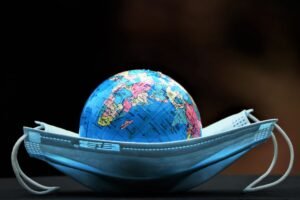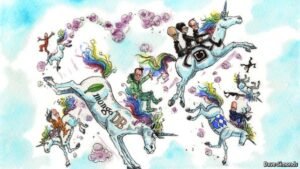Bitcoin, FOMO, ETH and all the other 2021 slangs.

What do these strange letters, symbols, words mean? What is cryptocurrency?
Move over AI, you’re old news.
There’s a new kid on the block. Like a secondary school nickname for that one guy who’s always coming late, or always getting in trouble. Crypto.
But unlike that dude nobody wants to invite home during the holidays, everybody wants to associate with Crypto.
The crypto craze is so real that it’s turned virtually all of us into side-hustlers. Giant organisations who wanted nothing to do with it are now tripping over themselves in excitement, some concern and major trepidation. FOMO – the Fear Of Missing Out.
FOMO is a present concern in practically every aspect of life – tapping you and pointing in the direction of a blossoming venture; waking you up in the middle of the night, reminding you just how much time you are wasting and how you just might never catch up. When the excitement for cryptocurrencies began, most of us ignored it like it was just another hype that needed a firm hand, hammer or event to “calm down.” But if you are an attentive person, or spend any amount of time at all on social media, then at some point, lately, you might think: but this thing really isn’t slowing down – and what if I’m missing out on what could potentially change my life forever?
To put this in context, at one point in 2018, Bitcoin traded at $3,000. At its highest points so far this year, it’s topped over $60,000. Forget the current dip, it is projected to hit $100,000 before the year runs out. Some Bitcoin enthusiasts estimate it might hit a million dollars at some point in the future. That’s $1,000,000!
Are you starting to pay attention?
Do you understand the language FOMO speaks now? No? Yes?
We must admit it’s got us all right where it wants us. You could be in the middle of Lagos traffic, displaying periodic Nigeria-type driver drama and plotting graphs on your windscreen. A thought could hit you right in the midst of reviewing a critical contract, leaving you to wonder “so what exactly does p2p mean, and how can I double my investment by August?”
ETH is a short form for Ethereum, an alternative to Bitcoin the Adam and King of Cryptos.
So why exactly is everyone getting on the cryptocurrency train? And should you? Is the momentum sustainable? What do these all even mean?
I explore in another post.
Read some more of my writing here.
Are the days of WhatsApp's domination over?
WhatsApp is the favourite baby boy of social media. The dude around every corner. The most popular guy on the block. And for good reason - the ease and success with-which it's permeated our lives and seeped into our beings is being studied in schools.
Across several industries, we have felt the impact. Tech and engineering, science and research, business and investment, startup and entrepreneurship, leadership and mentorship, legal and data-mining.
Moving stealthily at first, then aggressively, it toppled the world's former favourite platform - BBM.
Regardless, on January 4, 2021, WhatsApp shipped out an update, consequently reviewing its Privacy Policy - an action that cascaded into a worldwide #BoycottWhatsApp Campaign. Within days, WhatsApp's rivals celebrated record-breaking new entrants. Signal: 40 million, Telegram: 25 million.
How it started vs how it's going ???? pic.twitter.com/ERiFpZUz6c
— Signal (@signalapp) January 14, 2021
From the corner of my eye, I watched as people erected social media, virtual placards and clamoured for us all to jump ship. Elon Musk simply tweeted "Use Signal" and thousands followed suit - rapping relentlessly about the need for us all to leave now. Uhm…not quite. I mean, I considered it. Even researched what features Signal really has. I did a random survey on my contact list and found out that a few people actually did download the app. I do have the Telegram App and have had it for almost 2 years. I love it and stand in awe of its outstanding features. Head to head, it has so much more features than WhatsApp.
But these competitors notwithstanding, is it time for WhatsApp to be toppled yet? Nah, I don't think so.
You see, as yet, the userbase is too strong. And there is the undeniable counter-attack and defence posture that Facebook and Instagram provide. These platforms are firm backbones that you simply cannot ignore. I can almost hear you thinking - 'but BBM used to be the rave of the moment, and look what happened to it.' It's really not quite the same. The decline and eventual death of BBM cannot entirely be traced to WhatsApp. In fact, it was self-inflicted.
Terrible internal policies, bad employee management, a needless redirection, loss of passion and vagrant neglect of good advice. The Research in Motion Management (owners of BBM) decided to focus on building Enterprise Applications, security software, at the expense of the one thing that put them past the mobile giants of the day. To reflect, BBM was so successful that despite being just an app, it pushed BlackBerry ahead of Nokia, Samsung and the giants of that day.
When Barack Obama became president, it is reputed that he refused to give his Blackberry up, instead saying that the officials who wanted him to stop using it would have to "pry it out of [his] hands".
Still, look how bad decisions killed its vibe.
I do not see WhatsApp making the same mistake. I have seen the company respond in real-time to competition, copy amazing features of its competition (though most times it's slower than we'd have appreciated). It is quick and responsive in terms of its policies, and has even responded quickly to the current concern by releasing a response to what it calls a misconception, extended the date by-which users need to accept the terms, and silently rolled out new features. Annnnd, there's Mark. Talking about entrepreneurs, Mark Zuckerberg is as dogged and rugged as they come. Look how much userbase he musters. At its height, BBM had less than 200 million users. In comparison, WhatsApp has more than 2 billion. Facebook, almost 3 billion. IG, over 1 billion. In an earlier post, I commented about how Mark controls a combined virtual, digital country of almost 5 billion people.
And left alone, undeterred by regulators or antitrust, anti-competition suits, Facebook is capable of buying both Telegram and Signal in seconds, without breaking a sweat. Don't put it past them.
So, to address the elephant in the room, what's all the fuss really about? And how much data does WhatsApp really hold on you?
I'll address this in another post.
But here's a pro tip: the time hasn't come for WhatsApp to be toppled. In fact, it's about to get bigger and better. Lots of exciting, amazing features are coming and I personally cannot wait. Yes, ADs are coming, and I'm sure you could have predicted that. But more - chat edits are coming for sent (delivered and already read messages), greater admin powers will arrive, disappearing messages have arrived, mini-websites within WhatsApp Business are coming.
This is the most exciting for me:
Multi-device support! In short, you will finally be able to sign in on many devices at once.
If the time ever comes to move and/or ditch WhatsApp, I'll let you know it.
So stay tuned ????
Read some more of my writing here.
The impacts of 2020 and COVID will stay with us forever.

Sometimes we need to take people literally at their word. Not infer a metaphor, not assume an implication. But take them at face value.
The 2020 experience.
For a year that appeared on the horizon promising to take our breath away, it looks like we misread the memo. Not to be a naysayer, pessimist or any such thing, the year has literally attacked our breathing system - individually, corporately and collectively. This attack for mankind's lungs would eventually crystallize in George Floyd's gruesome murder, instigating the worldwide "I can't breathe" campaign.
Our world has suddenly become a smaller, largely scarier, and more delicate place to live in. On the whole, this has impacted us to the very core of our beings and our unified race. And its impact won't leave in a hurry. Family life, faith, work, existence and socialization will feel the ripple effects forever.
I compiled a list of things that may never go back to the way they were.
Parties and condensed areas. It's the age of Zoom weddings and Instagram Live Introductions. Would you have assumed that there would be such a time as this? Parties are still currently outlawed in most parts of the world, marketplaces are running on shifts, people are observing strict physical and social distancing. What a time to be alive. Even when this is over, the consciousness for personal space will stay etched in our consciousness.
Social places [eateries, restaurants, clubs and parks, cinemas]. Get your food and leave! You may eat in your car or drive all the way home if you can wait, but the government and food vendors are saying: please love us from a distance, we'll do the same. That love waxing cold isn't sure to get warm anytime soon. Netflix and similar subscription-based movie screening and streaming are the future. Football viewing centres will suffer reduced patronage as wave after wave of the virus continues. Even after we find a cure, I'd rather just enjoy home-screening, thank you very much.
The Finance Industry. Cash transactions will slowly bite more bullets. Fintech is the future of banking. Technology is the future of virtually anything, anyway. But in particular, more transactions will move to digital, non-cash, tech-based forms. The prudent banker needs to take the time to garner as much knowledge in this field as possible because it's almost fully buffered. During the strictest periods of the lockdown, we realised how little one needed cash for things that really mattered. Online ordering, subscriptions, ticketing and e-wallets ensured that we were all safe behind our phone and computer screens while the virus ravaged and rummaged outside.
Worship centres and rigid religious idiosyncrasies. Three months now, we've all been barred from going to religious places. Churches, mosques and other religious centres where it seemed like physical attendance was the only way to worship have found ways to keep the faith and spiritual consciousness unhindered and on point. I personally have had to review a lot of idiosyncrasies I had regarding a myriad of issues, and although I haven't lost my faith [I am a practising Christian], I have realised how flimsy, lightweight some of the rigid beliefs and approaches I had were. A lot has changed in me, as I'm sure they have in many. God isn't a figment of our imagination, neither a product of our rigid and unbending "if you don't believe what I believe you're doomed" approach. Faith is extremely personal, and although our experiences do influence others, they should by no means be the lens by which we grade their morality, holiness or uprightness.
Real estate. This is a big deal - particularly commercial real estate. Working from home has become a darling phrase during these times; perhaps only beaten to second place by 'Coronavirus or COVID-19'. Employers who were originally adamant, unwilling to even consider the possibility of remote work, are now clutching the concept very close to their chests. It took only a few weeks of COVID-19's merciless punches to humble them. Costs are being cut, cut, cut. This can only mean that even when we leave these dangerous times, employers need no external data - they know that over 80% of work they've always compelled physical presence for can be done remotely. Still sure you need that intended million dollar commercial real estate project? Think again.
Did I miss out on any?
Please let me know in the comments.
And don't forget to share.
______
Read some more of my writing here.
You need help.
Everybody needs help.
Too often, we fall into the trap of a lone man ranger ideology. Somebody hurts us, betrays our trust, reveals some confidential information to a third party, or crushes our expectations to our face. We clench our fists, fume through the ears, and mentally delete them from our list of favourite people - before going ahead to block and mute them everywhere.
But, bitter as it may sound, we cannot always go it alone.
The fingers on our hands are proof that solitude and self-aggrandizement, when not monitored, can be dangerous. We were made for company. An unchecked, wild-west, I-need-nobody mentality is both dangerous and senseless
God has angels who do His biddings.
Jesus was as divine as the other members of the Godhead, and as human, as the work required, yet He had help. All through His ministry, He constantly made calls to Heaven's powerhouse.
Moses had help, Samuel did, Peter did, Paul did.
You do, and will.
Praying is a common, worthy Helpline process.
So is talking to a good friend, a mentor, a role model.
And whenever you're too preoccupied, arrogant or ignorant to seek help, when a helper reaches out, competently and genuinely, jump at it.
Read some more of my writing here.
Great ideas start out looking silly.

Great ideas start out looking silly.
And so do their proponents.
For as long as the flood existed only in Noah's mind, he looked stupid. While he chiseled, hammered, nailed things into place, it appeared like he was high on something.
Absurdity has some affiliation with greatness. Great people don't pursue commonplace things. Great events defy the normal, usurp the ordinary, challenge the natural.
And while you build by day,
And preach an impending change by night,
You look foolish...
...until the first raindrop.
Prov. 22.29
You can find some more of my writing here.
That time when Social Media died - for hours.

Social media died - for hours.
Talk about 'understanding the times.' Many picked the wrong time to set sail with their goods on Thursday, March 14 2019. Sh** hit the fan. All hell broke loose. Pandemonium ensued. The three largest Social Media platforms - Facebook, WhatsApp and Instagram [MarkVille] - went down for at least 8 hours. While users wondered what sort of iceberg hit their beloved vessels, many jumped ship and took to Twitter. Twitter, home of banter, the world's headquarters for the hottest gist and gossip welcomed them with open arms. FacebookDown and InstagramDown chants filled the air in the way of hashtags, and Twitter influencers had a filled day.
Home to a combined 4.8 billion users, there's no larger country anywhere in the world. Put simply, if Mark was a President and the subscribers to his SM products were citizens, he would lead a land bigger than China and India.
What was lost?
Millions of companies advertise on MarkVille. In fact, many live there predominantly. They advertise, take orders, ship, restock, run promotions entirely there. When the outage occurred, most running ads simply disappeared - or well, took on Ghost mode. They were running but weren't leaving footprints. You couldn't see them. Imagine all billboards and posters taken down all over cities, and all shops shut down. Businesses couldn't showcase their wares properly, and buyers couldn't see.
On WhatsApp, it wasn't as drastic. While you could still continue chatting with the love of your life, it was your voice notes and lovely videos that suffered. You'd have had better luck getting a stubborn cow on a boat.
What caused it?
A glitch. A server outage that's bound to happen if you run an economy so dynamic, so diverse. Amid the scramble to restore order back to their systems, MarkVille had to resort to its rival, Twitter, to explain that this was being worked on and the nightmare would soon pass.
What if it happens again - this time on a grander scale? What if not just a part, but all of social media dies for more than hours, but days, ever?
It's not a first. Not a second. And it is bound to happen again. Twitter itself is experimenting with a side product called Twttr in a bid to redesign, overhaul its product.
While liability falls like a lot all around laps for these technological glitches, how is your business preparing to meet uncertainty squarely in the field of future uncertainty?
It may seem highly unlikely - especially as the Worldwide Web hit 30 on 12 March 2019. Somehow, the internet has survived.
But what if some internet-esque electromagnetic pulse hit, and everything was shut down? Or an alien civilization struck and took out Earth's technology first?
Doomsday scenarios beg for emergency procedures.
What nasty and brutish times await?
Read some more of my writing here.
Is the [Nigerian] Legal Industry stunted in growth?
The Nigerian legal industry is not growing.
What do you do about a child who looks and acts 12, but whose birth certificate says 40? How do you manage a situation where appearance and reality are stark opposites?
Medically, although the Stunted Growth condition is global in nature, it has a disturbing widespread presence in Africa. Could Nigeria's Legal Industry be suffering so much stagnancy and stunted growth because we think too much like lawyers? Sometimes we don’t follow the science. We follow the sentiment and buzz. We flock.
Stay with me.
There are job descriptions today that didn't exist 10 years ago. For instance, you couldn't be employed as a Social Media Manager, a Data Scientist, an SEO Specialist, a Coder, a FrontEnd Developer, a BackEnd developer, Full Stack Engineer, an Uber driver, or even a Legal Tech Advisor.
But we live in a different world today than we did in 2009.
When the #10yearChallenge hit the waves of social media many weeks back, I took some time to consider just what kind of time-capsuled pictures Technology would share if it joined the Challenge as a poster. Today, your iPhone is millions of times faster than the Apollo Computer onboard Apollo [the spaceflight that enabled the first men to land on the moon]. In a new world of the blockchain technology, geocoding, geotagging and data analytics, it's only a matter of time before our Salomon vs Salomon, Labinjoh vs Abake, Diamond vs Chakrabarty memories give way for current realities.
Still, our learning models, justice systems, legislative processes, electoral patterns, work habits bear 1980 tags - back there in the days of floppy disks, turntables and car-size TVs.
The Nigerian legal industry is not growing.
Perhaps we are hyped in our minds about the future and all its prospects, yet dogmatic with our laws, practice styles, job titles and work ethics. Maybe we are scared to take a step into the river for fear that we may drown. Are we stunted in our approaches, unwelcoming of newer ideas and suggestions for fear that we may soon become irrelevant?
And that is the danger of it all.
For, how do we handle a future we're unprepared for? How do we regulate an industry that's globally moved a thousand miles while we're still circling through streets of the Past, shuffling mountains of papers, battling hours of avoidable commuting, labouring daily to choose between having a life and a career?
The stunted growth condition is a medical anomaly by which the body continues to grow old, but stops growing up. It can plague an industry and can haunt a nation. It is like being stuck in the mud of an eternal present, while time mindlessly ticks away. Like swimming around in stagnant waters while rapping incessantly about what glory the future holds.
This post first appeared here on March 28, 2019.
Read some more of my writing here.











